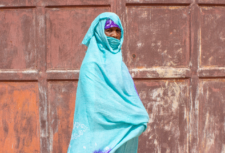Disclaimer: This article is more than 16 years old, and may not include the most up-to-date information or statistics. Please verify information with more recent sources as needed, and if you have any questions contact our Press Office.
6 July 2007
Brazilian authorities freed over 1,100 forced labourers from a sugar cane plantation in the Amazon in the biggest raid to date.
The government’s Mobile Inspection Group led the three-day raid, which ended on 2 July, against a plantation owned by the country’s largest ethanol producer in Para state. Workers were forced to work from 3am to 5pm for little or no money. Those who were paid only received US$5.00 per month. They were kept in terrible conditions and many were ill as a result of only having rotten food to eat and bad water to drink.
Most came from the neighbouring state of Maranhao and were recruited with promises of good pay, but once they arrived they were told they owed money for their transport and supplies. Officials said they are calculating what the company owes the workers in back pay.
Pagrisa, which produces 50 million litres of ethanol each year and supplies the state-owned energy company Petrobras, has denied the presence of slave labour on its estate.
The Labour Ministry says it has freed more than 21,000 people since 1995 in raids against estates in the Amazon. Despite the Government’s aim to eliminate slavery by 2006, thousands of Brazilians continue to be trafficked from impoverished parts of the country, lured to Amazonia by promises of good work.
It is vital the Government brings slave labour offences clearly under federal jurisdiction and gives labour prosecutors the necessary competence to bring criminal cases against people who subject others to forced labour practices; expropriates properties from those who use slave labour and use the land for agrarian reform; and implements plans, particularly focusing on land reform and social programmes, to prevent workers being entrapped in slave labour situations in the most affected regions, such as Maranhao, Piauí, Pará and Tocantins.





